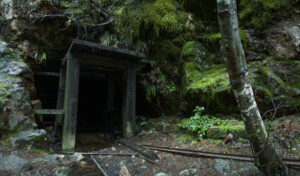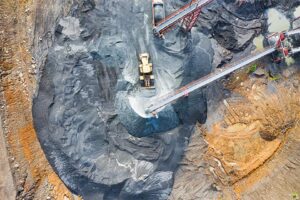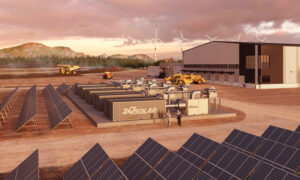NINE TIPS FOR RENEWABLE ENERGY PLANNING

Ludovic Rollin, senior environmental consultant with global mining consultancy SRK Consulting, recently outlined nine key considerations for miners seeking to decarbonize their operations. In an article from Australian Resources and Investment, reprised by Australian Mining, Rollin says the first requirement is a change of mindset.
The future starts now
“Some companies are set in their ways with plant design,” he says. “They can’t see how solar, wind or hydro could power the mine. Or they incorporate a small proportion of renewables in the energy mix.” He believes this approach is partly due to a lack of understanding of potential options.
Also, they may not fully appreciate the risks. Per AM, “Rollin believes mining companies that do not consider renewable energy to power mines – particularly for new projects – face greater risks in the future.”
Without planning for renewables, Rollin says, “By the time the mine gets through the feasibility-study stage and is built, it could still be using fossil fuels as its main energy sources in 2050 … That would be a significant risk.” As more countries commit to net-zero emissions targets, miners will be under greater pressure to decarbonize their operations.
Nine tips for good practice
Here are Rollin’s nine tips for approaching the inevitable migration away from fossil fuels for powering mines:
- Start early: Renewable energy should be a larger part of mine-planning discussions from day one of a project.
- Aim for 100 per cent renewable energy: It might not be possible for a particular mine, but aiming for full renewable energy makes sense. This approach is more effective than trying to incorporate a small proportion of renewables into the mine’s energy mix and building from there.
- Be open-minded:Recognise that renewable-energy technology is changing rapidly. Understand that cost assumptions for renewables could change as the project is planned, making capital expenditure more feasible at the mine.
- Ensure you have the right internal people/external support: Assessment of renewable technology at mines requires expert skills and planning. Ensure your organisation has sufficient internal skills with renewable energy and/or access to external consultants with substantial expertise in the field.
- Financiers:Understand the approach of current or potential financiers for the mining project. How do they view renewables in mining? How does implementing renewable energy at the mine affect the project’s cost of capital?
- Government support:Determine if there are federal, state or local government incentives that can help decrease capital expenditure for a renewable project. Understand how governments view the potential of introducing renewables at a mine, and what it means for the local community.
- Build a long-term case for renewables, beyond the mine: How many jobs will the renewable project create for the local community during and after construction? How many local businesses can the project support? How many local homes could the mine power? What are other potential uses for the mine’s excess renewable energy?
- Consider renewables as part of mine closure: Discussions on renewables are important at all stages of the mine, and particularly for mine closure. How could renewables help the nearby community when the mine eventually closes?
- Engage early: Renewable projects require significant support from communities, nearby industry and different levels of government. Consider what it means for the project to have and maintain a sustainable development licence to operate, and the importance of community engagement within that process.
Read more here.
THE PATHWAY TO 100% RENEWABLE ENERGY
An array of 247Solar HeatStorE long duration thermal batteries
Achieving high levels of renewable energy is particularly challenging for off-grid mines in remote locations because intermittent PV or wind with costly batteries still require dirty, expensive diesel for backup. Many mines also require high-grade heat for on-site processing and other uses. 247Solar offers the only renewable energy technologies that:
- Integrate seamlessly with PV or wind to provide round-the-clock clean electricity
- Provide industrial grade heat up to 970 ℃ (1800 ℉) for ore processing, steam generation and other applications
- Provide their own backup by burning almost any locally available fuel to produce power even when storage is depleted, eliminating gensets and reducing fuel costs up to 80%
Get in touch to learn more.
ESG BENEFITS BEYOND MINE CLOSURE

Thomas Shahan – Flickr
Some forward-thinking miners are exploring ways to continue extracting value from disused sites and providing benefits to surrounding communities once mineral extraction has ended. Two recent articles on this topic caught our eye.
The first, in Australian Mining, cites the example of the former Kidston gold mine in Queensland. Once Australia’s largest open-cut gold mine, the project closed in 2001. Genex, a power company, is now transforming the site into a clean-energy hub by combining solar, wind and pumped-storage hydropower. This landmark conversion of a disused gold mine will generate enough electricity to power 143,000 homes for eight hours – and is expected to create at least 500 jobs during construction.
The Kidston Pumped Storage Project essentially turns the mine’s massive open-cut pits into a giant battery by pumping water into an upper energy-storage reservoir when energy prices are low. It then releases the water through reversible turbines into the lower reservoir to generate power when energy demand is high.
A piece from Mining.com describes how an international team of researchers is developing a novel way to store energy by transporting sand into abandoned underground mines. The new technique, called Underground Gravity Energy Storage (UGES), proposes an effective long-term energy storage solution while also making use of now-defunct mining sites.
The business model is not unlike the pumped hydro storage in the Kidston mine, but the scientific principle is different. In a paper published in the journal Energies, the researches describe a process that generates electricity when the price is high by lowering sand into an underground mine and converting the potential energy of the sand into electricity via regenerative braking and then lifting the sand from the mine to an upper reservoir using electric motors to store energy when electricity is cheap.
“When a mine closes, it lays off thousands of workers. This devastates communities that rely only on the mine for their economic output,” says Julian Hunt, lead author of the study. These two examples show how mines can offset these impacts with lasting benefits to surrounding communities while simultaneously creating new, ongoing revenue streams for themselves by repurposing otherwise abandoned assets.
Read more.
EUROPE’S BIGGEST DEPOSIT OF RARE EARTHS FOUND IN SWEDEN

Tom Fisk – Pexels
Reports from Reuters and elsewhere reveal that Swedish state-owned mining company LKAB has discovered more than 1 million tons of rare earth oxides in the Kiruna area in the far north of the country, the largest known such deposit in Europe.
Rare earth minerals are essential to many high-tech manufacturing processes and are used in electric vehicles, wind turbines, and many types of electronics. Demand for rare earths is expected to rise in coming years due to a ramp-up in electric vehicles and renewable energy. However, these elements are currently not mined in Europe, leaving the region depending on imports, primarily from China, where 63 percent of the world’s rare earth mining and 85 percent of rare earth processing takes place.
Sweden’s Minister for Energy, Business and Industry Ebba Busch says in a statement “Electrification, the EU’s self-sufficiency and independence from Russia and China will begin in the mine.”
Read the Reuters article here.
FOLLOW & JOIN 247Solar
Contact: info@247solar.com
